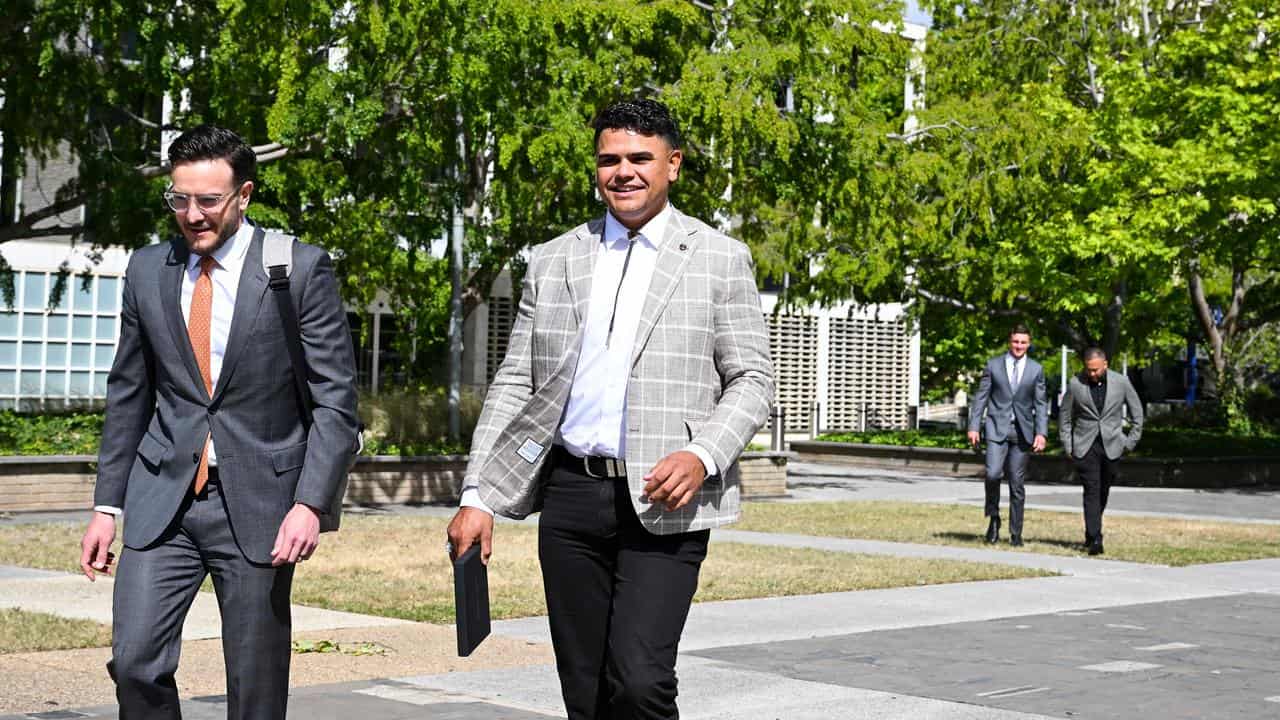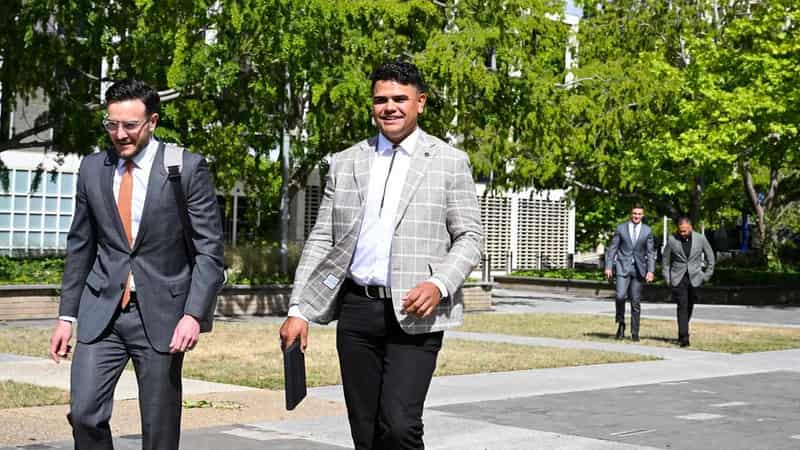
Latrell Mitchell's lawyer says the fullback's "extraordinary strength" might have saved his life when he was arrested outside a Canberra nightclub in February.
The South Sydney superstar pleaded with police to ease up in their treatment of him and cried in pain after being arrested for an alleged fight with his cousin Jack Wighton.
Both have since beaten charges relating to the incident, Magistrate Jane Campbell dismissing them on Wednesday morning.
But Mitchell’s lawyer Tom Taylor said the treatment of the duo was a cautionary tale, wondering if accused people with less resources might have ended up in jail.
Mitchell, a Birpai and Wiradjuri man, could be heard on police camera footage screaming “because I’m a blackfella” as officers elbowed and kneed him while he appeared to be complying with their requests.
Mr Taylor said there was a “sobering reality” to how the NSW and Australia representative star was treated.
“Three to four grown men forced themselves on top of him … but for his extraordinary strength, he might not have survived - any other person could have died,” he told reporters outside court.
“He was told to get on his knees - he complied … there was absolutely no need by police to use the level of force Mr Mitchell endured, no person should be subjected to the treatment.”
Indigenous people are 17 times more likely to be arrested than non-Indigenous people and are jailed at 14 times the rate of non-Indigenous adults, Mr Taylor pointed out.
“We know Indigenous people are dying in custody, we know Indigenous people are more likely to be arrested … we need to do better as a community,” he told reporters.
“What if Mr Mitchell was convicted for resisting police officers … when he was brutally taken to the ground and subjected to inhumane treatment? Mr Mitchell and Mr Wighton might have become further sad statistics.”
The case was pulled after a key police witness admitted he falsified evidence in the prosecution of the high-profile duo.
Canberra CEO Don Furner said it was likely not the last ACT Police or the DPP had heard about the matter, as lawyers flagged potential civil action.
“They weren't treated like normal members of society. They were targeted because they were NRL players and (police thought) they could make a name for themselves,” he told reporters.









